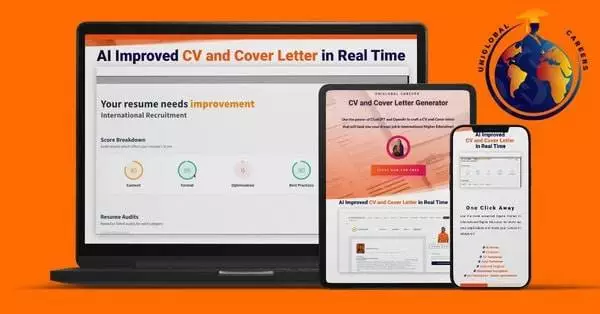The international higher education job market is diverse and competitive, presenting a unique set of challenges to those seeking employment in this field. From cultural and language barriers to legal and visa considerations, navigating this market requires a strategic approach and a willingness to adapt to changing circumstances. In this article, we’ll explore the key challenges of finding a job in international higher education and provide practical tips on how to overcome them.
Understanding the International Higher Education Job Market
Before jumping into the job search process, it’s essential to have a broad understanding of the international higher education job market. While many aspects of this market are similar to domestic job markets, there are important differences to consider. For example, job opportunities in international higher education can vary significantly by region or country, and the hiring process can be more complex due to legal and cultural differences. Understanding these differences can help you identify the most promising job opportunities and navigate the application process more effectively.
When it comes to international higher education, it’s important to have a global perspective. This means staying up-to-date on the latest trends and developments in the field, as well as building a network of contacts across different regions and countries. This network can be invaluable when it comes to identifying job opportunities, accessing resources and information, and building relationships with potential employers.
Differences between Domestic and International Job Markets
One significant difference between the domestic and international job markets is the importance of building a global professional network. In international higher education, networking is critical for building relationships with potential employers, accessing job opportunities, and gaining insights into trends and best practices. It’s also important to understand the cultural and legal differences that can impact the hiring process, such as visa requirements and language proficiency.

Another essential difference to consider is the recognition of international qualifications. In some cases, you may need to have your qualifications evaluated by a professional credentialing service to demonstrate your competency and eligibility for certain positions. It’s important to research the specific requirements for the countries or regions you’re interested in working in, and to ensure that your qualifications meet those standards.
Key Players in International Higher Education
There are many key players in the international higher education job market, including educational institutions, research organizations, and international development agencies. Understanding these players and their roles can help you identify potential job opportunities and tailor your application and networking efforts accordingly.
For example, educational institutions may offer a variety of positions, from faculty and administrative roles to positions in student services or international programs. Research organizations may focus on specific areas of study or provide consulting services to universities and other institutions. International development agencies may work on projects related to education and workforce development in developing countries.
It’s also essential to keep up-to-date with emerging trends and opportunities in the field, such as the growing demand for online education and the increasing importance of digital literacy. By staying informed and connected, you can position yourself for success in the international higher education job market.
Navigating Cultural and Language Barriers
One of the most significant challenges of finding a job in international higher education is navigating cultural and language barriers. As an applicant, you may need to adapt to different cultural norms, overcome language challenges, and build relationships with colleagues and employers from diverse backgrounds. Here are some practical tips for navigating these barriers:
Adapting to Different Cultural Norms
When working or seeking employment in a different culture, it’s important to be open and respectful to cultural differences. This may include adapting your communication style, dress, and behavior to align with local norms. For instance, in some cultures, it is customary to address colleagues using their formal titles, while in others, first names are more common. Understanding and respecting these differences can help you build stronger relationships with your colleagues and employers.
It’s also essential to understand the local work culture and expectations. For example, some cultures place a high value on teamwork and collaboration, while others emphasize individual initiative and self-reliance. Understanding these expectations can help you navigate the workplace more effectively and build stronger relationships with your colleagues.
Another important aspect of adapting to different cultural norms is being aware of nonverbal communication. In some cultures, eye contact is a sign of respect and engagement, while in others, it may be seen as confrontational or disrespectful. Similarly, gestures and body language may have different meanings in different cultures. Being aware of these differences can help you communicate more effectively and avoid misunderstandings.
Overcoming Language Challenges
Language challenges can pose a significant barrier to employment in international higher education. If you’re not a native speaker of the language spoken in the country where you’re seeking employment, it’s essential to develop your language skills through dedicated study or immersion programs. You may also need to demonstrate your language proficiency through standardized tests like TOEFL or IELTS.

One way to improve your language skills is to immerse yourself in the local culture. This can involve taking language classes, watching local TV shows and movies, and engaging with native speakers in social settings. Another option is to participate in language exchange programs, where you can practice your language skills with native speakers while helping them improve their skills in your native language.
It’s also important to be patient and persistent in your language learning efforts. Learning a new language can be challenging, but with dedication and practice, you can improve your skills over time.
Building a Global Professional Network
Building a global professional network is critical for establishing valuable relationships with colleagues and employers around the world. Joining professional associations, attending conferences and workshops, and participating in online forums and groups are great ways to expand your network and gain insights into emerging trends and best practices.
Another way to build your professional network is to engage in volunteer work or community service. This can provide opportunities to meet new people and develop valuable skills while making a positive impact in your local community.
It’s also important to maintain your professional network by staying in touch with your contacts and keeping them updated on your career progress. This can involve sending occasional emails or messages, sharing relevant articles or resources, or meeting up in person when possible.
By following these tips, you can navigate cultural and language barriers and build a successful career in international higher education.
The Importance of Qualifications and Experience
Qualifications and experience are undoubtedly two of the most critical factors that employers consider when hiring for international higher education positions. In today’s competitive job market, having a degree or certification is no longer enough to secure a job. Employers are looking for candidates who have a unique set of skills, knowledge, and experience that can help them succeed in a globalized world.

Therefore, it’s essential to understand the qualifications and experience required for international higher education jobs. While the qualifications needed may differ from those required in a domestic job market, having a strong educational background and relevant experience can help you stand out from other candidates.
Recognizing International Qualifications
If you have earned degrees or certifications from another country or institution, it’s essential to recognize and understand their value in the job market. Many employers may not be familiar with the educational system in other countries, and thus, may not understand the significance of your qualifications. Therefore, it’s crucial to have your credentials evaluated by a professional credentialing service.
Professional credentialing services can help you evaluate your qualifications and highlight your competencies to potential employers. They can also provide you with information on how your qualifications compare to those of candidates from other countries.
Gaining Relevant Experience
Gaining relevant experience is critical for securing a job in international higher education. Employers are looking for candidates who have experience working in a cross-cultural or international setting. Therefore, it’s essential to seek out opportunities that can help you develop the skills and knowledge necessary to succeed in this field.
One way to gain relevant experience is through internships. Many universities and organizations offer internships that provide valuable hands-on experience in international higher education. These internships can help you develop skills such as cross-cultural communication, program development, and event planning.
Volunteer work is another way to gain relevant experience. Volunteering with organizations that work in international education can help you develop skills such as leadership, teamwork, and problem-solving. It can also provide you with an opportunity to network with professionals in the field.
Teaching and research opportunities in international settings are also valuable experiences. These opportunities can help you gain a deeper understanding of different cultures and educational systems. They can also help you develop research and teaching skills that are highly valued in international higher education.
Pursuing Further Education and Professional Development
Pursuing further education and professional development can also enhance your qualifications and make you a more competitive candidate. Employers are looking for candidates who are committed to their professional development and are willing to invest in their education.
Earning advanced degrees or certifications can help you develop specialized knowledge and skills that are highly valued in international higher education. Attending workshops and training programs can help you stay up-to-date with emerging trends and best practices. Engaging in research and writing can help you develop a deeper understanding of the field and demonstrate your expertise.
Investing in your education and professional development can help you stay competitive in today’s job market. It can also help you build a career in international higher education that is both rewarding and fulfilling.
The Job Search Process in International Higher Education
The job search process in international higher education can be complex and competitive. However, with the right strategy and approach, you can identify promising job opportunities and craft a competitive application. Here are some tips to help you navigate the job search process:
Identifying Job Opportunities
Identifying potential job opportunities requires extensive research and networking. You may need to research educational institutions, development organizations, and research institutes in your desired location and field. Networking with colleagues and attending conferences and workshops can also help you identify job opportunities and gain insights into the hiring process.

It is important to keep in mind that the job market in international higher education can be highly competitive. Therefore, it is important to cast a wide net and apply to a variety of institutions and organizations. Additionally, it is important to tailor your application to each job opportunity, highlighting your relevant skills and experience.
Crafting a Competitive Application
Crafting a competitive application requires a tailored approach that demonstrates your qualifications, experience, and cultural adaptability. This may include highlighting your experience working in cross-cultural or international settings, including relevant language skills, and emphasizing your qualifications through recognized credentialing services.
It is important to note that different institutions and organizations may have different application requirements. Some may require a detailed curriculum vitae (CV), while others may require a cover letter and statement of purpose. It is important to carefully read and follow the application instructions to ensure that your application is complete and competitive.
Acing the Interview Process
The interview process for international higher education jobs can vary significantly from domestic job markets. You may need to prepare for virtual or in-person interviews that emphasize your communication and cross-cultural competency. Researching the institution and its culture, practicing your communication skills, and preparing for common interview questions can help you ace the interview process.
It is important to remember that the interview process is not just about demonstrating your qualifications and experience. It is also about demonstrating your fit with the institution and its culture. Therefore, it is important to research the institution and its values, and to prepare thoughtful questions that demonstrate your interest and engagement.
Finally, it is important to follow up after the interview process. Sending a thank-you note or email can demonstrate your professionalism and interest in the position.
In conclusion, the job search process in international higher education can be challenging, but with the right approach and preparation, you can identify promising job opportunities and craft a competitive application. By following these tips, you can increase your chances of success and find a fulfilling career in international higher education.
Legal and Visa Considerations
Legal and visa considerations are critical factors to consider when seeking employment in international higher education. Understanding work visa requirements, navigating international employment laws, and preparing for relocation are all essential steps in securing a job in this field. Here are some tips to help you navigate these important considerations:
Understanding Work Visa Requirements
Work visa requirements can vary significantly by country and institution. It’s essential to research and understand the visa requirements for your desired location and position, including the duration of the visa, work permit requirements, and potential restrictions on working or seeking employment in the country.
Navigating International Employment Laws
International employment laws can be complex and vary significantly between countries and institutions. Understanding these laws, including tax laws, benefit laws, and labor laws, is critical for ensuring you have a successful and legal employment experience. Seeking out advice and resources from professional associations, legal experts, and other professionals can help you navigate these complex issues.
Preparing for Relocation
Relocating for international higher education jobs requires preparation and planning. This may include securing housing, arranging transportation, and obtaining necessary travel documents. Creating a relocation plan and seeking support from colleagues and institutions can help make the transition as smooth as possible.
Building a Successful Career in International Higher Education
Building a successful career in international higher education requires a diverse set of skills, a global mindset, and a commitment to continuous learning and professional development. Here are some tips to help you build a successful and rewarding career:
Developing a Global Mindset
Developing a global mindset means embracing diversity, cultural adaptability, and a willingness to learn from different perspectives. It also means recognizing and navigating the geopolitical and economic factors that shape the international higher education landscape. Developing a global mindset is critical for building strong relationships with colleagues, developing innovative solutions, and staying competitive in the job market.
Embracing Continuous Learning and Adaptability
The international higher education job market is constantly evolving, with new trends, challenges, and opportunities emerging regularly. Embracing continuous learning and adaptability means engaging in ongoing professional development, staying up-to-date with emerging trends and best practices, and cultivating a mindset of innovation and creativity. It also means being open to new challenges, experiences, and opportunities, and embracing a growth mindset.
Networking and Collaboration in the International Higher Education Community
Networking and collaboration are critical for building relationships with colleagues and institutions, staying up-to-date with emerging trends and best practices, and taking advantage of new job opportunities. Professional associations, conferences, and online forums and groups are great ways to expand your network and connect with peers and experts in your field. Building strong relationships with colleagues and institutions can also help you develop innovative solutions to complex problems.
Conclusion
The international higher education job market presents significant challenges and opportunities for job seekers. Navigating cultural and language barriers, developing relevant qualifications and experience, crafting a competitive application, and navigating legal and visa considerations are all essential steps in securing a successful career in this field. Building a global mindset, embracing continuous learning and adaptability, and networking and collaborating with peers and institutions can also help you build a successful and rewarding career in international higher education.


